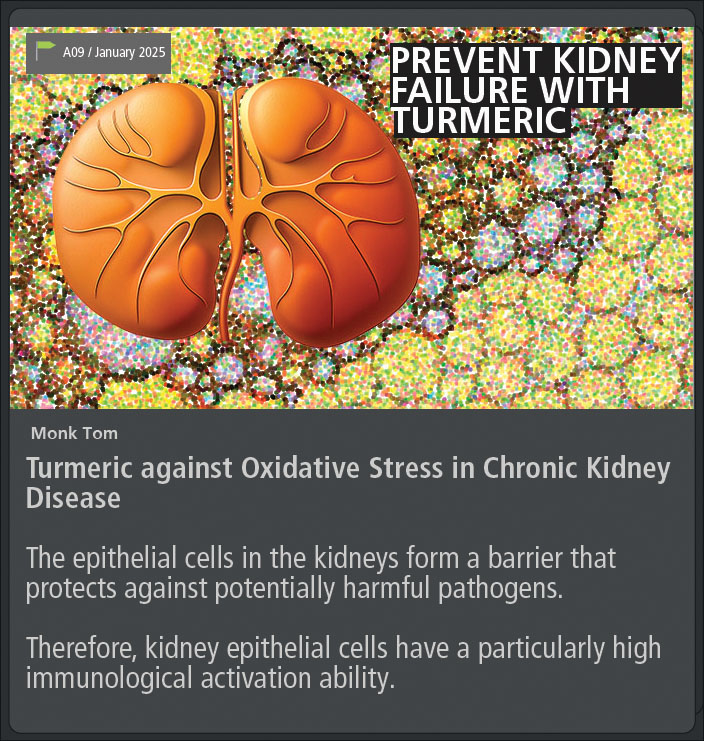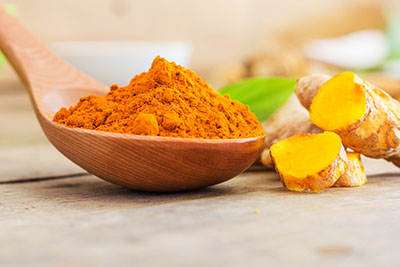TURMERIC AGAINST OXIDATIVE STRESS


Turmeric is the best herbal protection against oxidative stress in chronic Kidney Disease
The kidneys are our body's filter system and need a lot of clean, clear water so that they can work well. And especially in winter, the kidneys are very sensitive and need our attention.
Not cold water, but warm water 2 liters daily is the best kidney medicine.
The fluid flushes the organs properly and ensures healthy function.
Lemon juice helps prevent kidney stones and can even dissolve kidney stones. The citrates in lemon bind excess calcium, which in turn prevents the painful formation of crystals (kidney stones) in the kidneys.
Cellular damage caused by oxidative stress is an important mechanism for the destruction of renal epithelial cells. The epithelial cells in the kidneys form a barrier that protects against potentially harmful pathogens. Therefore, kidney epithelial cells have a particularly high immunological activation ability.

Turmeric with the active ingredient curcumin has significant anti-inflammatory, antioxidant properties that help counteract prooxidants (free oxygen radicals) and is the best natural active ingredient (without side effects) for the prevention and treatment of chronic kidney disease (renal insufficiency). Renal insufficiency is usually associated with severe oxidative stress. Oxygen reduction products and oxidative stress, i.e. an imbalance between antioxidants and pro-oxidants, contribute to the pathogenesis and progression of acute and chronic kidney failure. A pro-oxidative shift promotes harmful oxidative changes to key cellular components, leading to oxidative stress. It is a cell dysfunction that can lead to cell aging, cell death, disease and ultimately death.
That's why the spice Turmeric should not be missing in the kitchen and taking a Turmeric tea every day to prevent kidney disease is the best protection.
Source: Graduate School of Pharmaceutical Sciences, College of Pharmacy, Ewha Womans University, Seoul 03760, Korea; hasan800920@gmail.com (M.J.U.); pionhyun@gmail.com (E.H.K.) 2 ABEx Bio-Research Center, East Azampur, Dhaka 1230, Bangladesh; hannanbmb@bau.edu.bd 3 Department of Biochemistry and Molecular Biology, Bangladesh Agricultural University, Mymensingh 2202, Bangladesh Aida Doostkam 1 , Kamyar Iravani 2 , Leila Malekmakan 1 , GhazalGholamabbas 1 , Jamshid Roozbeh 1* & Amir Soltaniesmaeili
